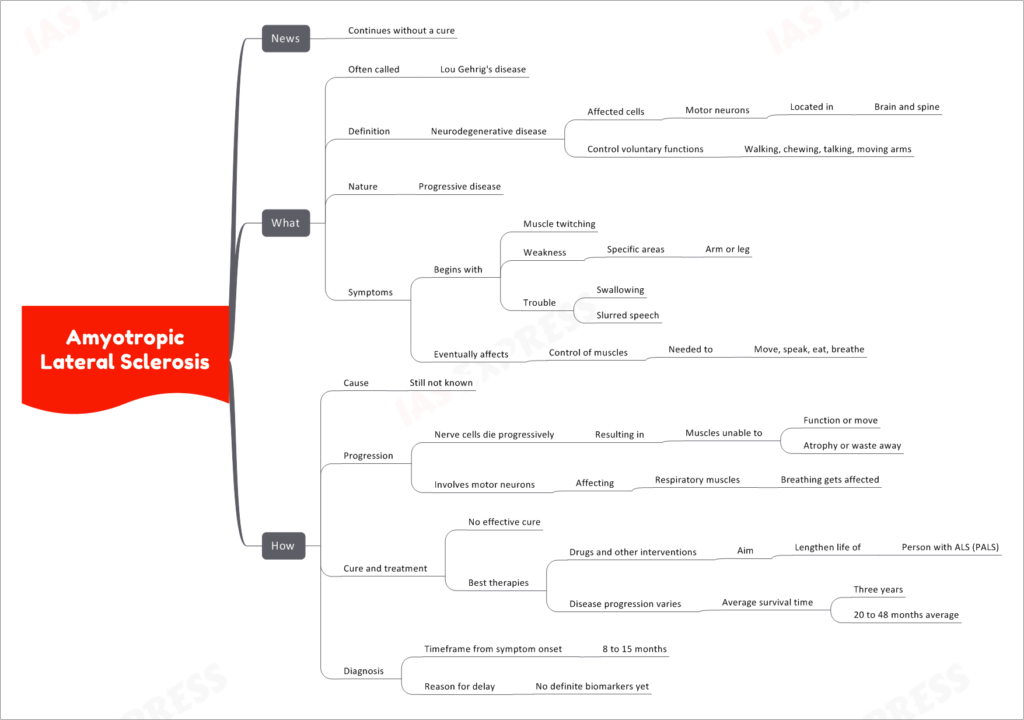Amyotrophic Lateral Sclerosis

Amyotrophic Lateral Sclerosis (ALS), frequently known as Lou Gehrig’s disease, is a neurodegenerative ailment for which a cure remains elusive.
This topic of “Amyotrophic Lateral Sclerosis” is important from the perspective of the UPSC IAS Examination, which falls under General Studies Portion.
What is ALS?
- Alias: Often referred to as Lou Gehrig’s disease.
- Definition: A neurodegenerative disorder primarily affecting:
- Motor Neurons: Cells located in the brain and spine that control voluntary functions.
- Functions Controlled: Walking, chewing, talking, and moving arms.
- Nature: It’s a progressive disease, meaning symptoms get worse over time.
Symptoms
- Initial Symptoms:
- Muscle twitching.
- Weakness in specific areas, notably in an arm or leg.
- Trouble with swallowing and slurred speech.
- Advanced Symptoms:
- With disease progression, patients lose control over muscles needed for movement, speech, eating, and breathing.
Cause and Progression
- Cause: The exact cause of ALS remains unknown.
- Disease Progression:
- ALS results in the progressive death of nerve cells.
- Over time, muscles lose their ability to function and move, leading to muscle atrophy (wasting away).
- The disease also impacts the motor neurons affecting respiratory muscles, thereby affecting the person’s ability to breathe.
Treatment and Prognosis
- Cure: Regrettably, there is no known effective cure for ALS yet.
- Treatment Options:
- The best therapies available presently include drugs and other interventions.
- Goal: To extend the lifespan of a Person with ALS (PALS).
- Disease Progression: It varies for each individual. On average, survival time after diagnosis is around three years, with a broader range of 20 to 48 months.
Diagnosis
- Diagnosis Timeframe: Typically, from the onset of symptoms, it takes about 8 to 15 months to confirm a diagnosis of ALS.
- Delay Reason: A significant factor for this delay is the absence of definitive biomarkers for the disease.

